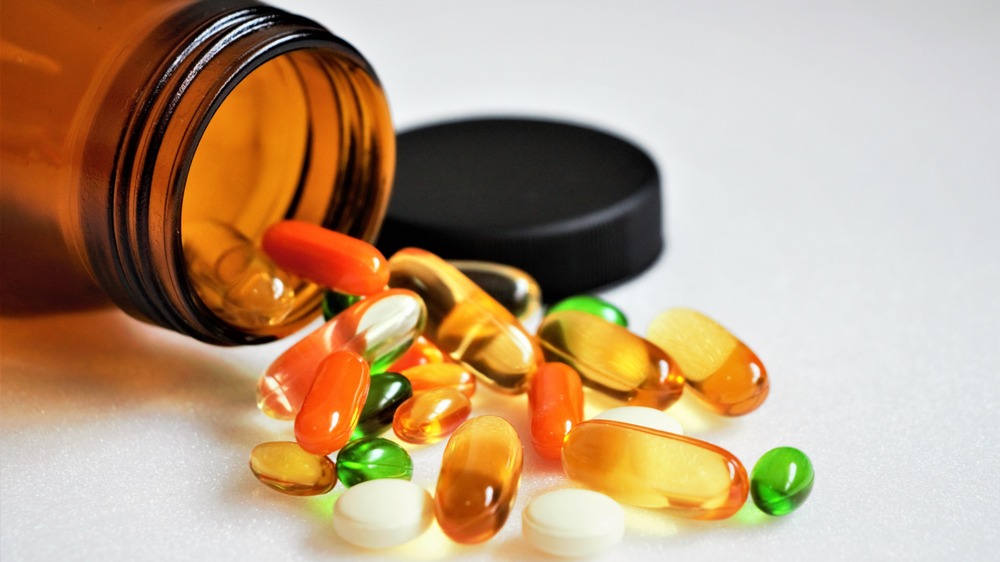You Have Too Much Vitamin A If This Happens To You
Many people know that vitamin A helps keep your eyes healthy, but it's also a powerful antioxidant that can fight off harmful free radicals. In addition to being an essential ingredient for reproduction and fetal health, vitamin A can help by stimulating your immune system to create cells that guard your body against infection (via Healthline). But what happens when you don't get enough vitamin A — and on the other hand, what happens if you get too much?
While it is rare for people in wealthier countries to have vitamin A deficiency, the World Health Organization says that a lack of vitamin A is the leading cause of preventable blindness in children around the world. It can also cause other severe health issues like anemia, as well as skin issues like acne. Because it is easily absorbed by your body, eating foods highest in vitamin A, such as eggs, liver, carrots, and kale can help you avoid complications from a deficiency. However, there is a risk of serious health issues from getting too much vitamin A.
The FDA recommends that adult women get 700 mcg of vitamin A per day, while men should get at least 900 mcg. Because vitamin A is stored in your body fat, it can build up to dangerous levels over time. Going over the upper limit of 3,000 mcg per day for adults can lead to toxicity — and even death. When this happens, it is most commonly caused by taking too many supplements or certain types of medications. So how do you know if you've gone over the safe limit?
When too much of good thing is bad
Chronic vitamin A toxicity can be recognized by side effects such as hair loss, jaundice, joint and bone pain, sunlight sensitivity, confusion, and more. Acute vitamin A toxicity — when you are exposed to a large amount at once — can have even more severe outcomes. Liver damage, an increase in intracranial pressure, birth defects, and even death have been observed in people who have had acute exposures.
While the side effects of having too much vitamin A can be scary, it's important to make sure you are getting enough of this essential nutrient. Unless your doctor prescribes it, you should not take high-dose vitamin A supplements. By eating a balanced diet and staying within the recommended daily allowance, you can give your body all the benefits of vitamin A without causing harm.


